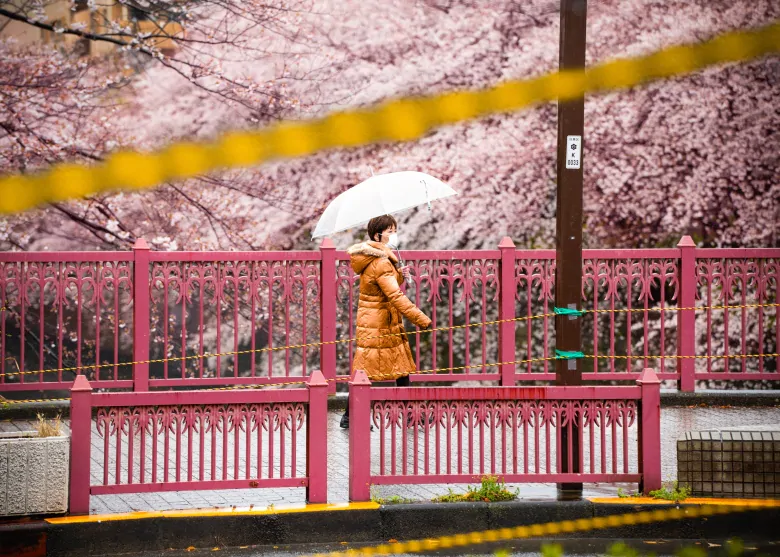Unlike other places in the pandemic world, Japan issues suggestions instead of commands. Violating them could get individuals a stern look, businesses a public shaming, but rarely a fine.

(Saša Petricic)
Like the iconic blossoms that fill Tokyo every spring — the pale pink Sakura — much of Japan is currently out of bounds. Roped off, closed or otherwise deemed unacceptable to visit. But unlike authorities in other places in the world, those in Japan have resorted to suggestions instead of commands. Violating them could get individuals a stern look, businesses a public shaming, but rarely a fine. The declaration of a national state of emergency was meant to send a signal, but the change has been incremental.

(Saša Petricic)
Routine behaviour
Physical distancing is a goal, not a national obsession — partly because it runs up against Japan’s rigid work culture, which usually requires long hours in the office. Tokyo’s morning rush hour is lighter now, about 30 to 50 per cent of normal on the trains into downtown. But commuters still rub elbows on benches, escalators and platforms.

(Saša Petricic)
What’s behind the relaxed attitude on Japan’s streets? Infection numbers that are still relatively low by world standards, if growing steadily. There are just over 13,500 cases nationally, less than a third of Canada’s. This even though Japan’s population is more than three times the Canadian population. Total deaths are around 375, fewer than New York is experiencing daily now. Testing is also lower here, as Japan has put more emphasis on its own system of targeted contact tracing.
Business ventures

(Saša Petricic)
Faced with that low sense of risk, businesses like Daisuke Shimazaki’s Tokyo sushi bar choose to remain open. “Of course, I’m afraid,” he said, “but I have to eat. I have to pay my bills and my staff.” Many stores, rest

